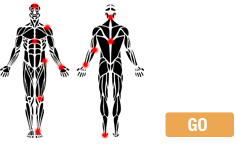What is the Temporomandibular Joint (TMJ)?
The TMJ is your jaw joint is and located directly in front of your inner ear, below your temple, and is a part of the body we use many times during the day when we talk, yawn, eat, drink or chew (see diagram). Usually, you are only aware of this joint when it becomes painful.
What causes TMJ Dysfunction?
The pain and tenderness of TMJ dysfunction can be caused by the disc in the joint moving out of place and causing pressure on sensitive structures around the joint. Early signs may include clicking long before the onset of pain. Your dental specialist may also notice wear and tear on your teeth as an early indicator.
Other causes of TMJ Dysfunction include:
- Clenching or grinding of the teeth, both during the day and while sleeping at night
- Poor posture, leading to strains or overuse of muscles in the face and neck
– try changing your head position and notice how your bite changes? - Inability to relax
- Poor diet
- Lack of restful sleep
- Arthritis
- Fractures
- Alignment or structural problems present since birth (effectively treated by a your physiotherapist and osteopathic practitioner)
- Injuries to the face, head or neck, such as concussions, facial blows, or motor vehicle accidents
Symptoms of TMJ Dysfunction
The pain of TMJ dysfunction can vary greatly. It is usually located just in front of your ears, but can be felt in the teeth, ears, head, jaw and neck. Patients will describe the pain as sharp, searing and catching, or dull and constant. It can be extremely debilitating.
Other symptoms include:
- Ear pain, or fullness of the ears
- Facial pain
- Sore, tight, tender jaw muscles
- Temple, cheek, tooth or jaw pain while swallowing, yawning, talking or chewing
- Jaw popping, clicking or locking upon opening or closing, or while chewing
- Reduced ability to fully open or close the mouth
- Frequent headaches or neck aches
- Muscle pain and spasms in the face, head and neck
- Ringing in the ears
TMJ Treatment – Osteopathy or Physiotherapy
Are there treatment options?
Fortunately yes! Your highly trained Physiotherapist can help. Using our unique multi-modal approach your therapist will teaching you relaxation, stretching and strengthening exercises for the face, head and neck muscles. These exercises can also help to augment the effect of the appliance or mouth guard your dentist may have already provided to you or we would be happy to recommend dental professionals with TMJ dysfunction experience whom we currently work with.
Your program may include one or more of the following:
- Stretching and strengthening exercises of the jaw, head and neck
- Postural correction, relaxation and breathing exercises
- Manual stretches and mobilizations of the jaw and neck joints
- Modalities such as Laser, Ultrasound and electrical stimulation to decrease pain and improve healing
Your physiotherapist may also recommend osteopathy or cranial osteopathic therapy: Most TMJ dysfunction will benefit from this care. - Your cranium is made up of different bones that move and must be free of tension in order to function normally
What can you expect?
At Physioactive Orthopaedic and Sports Injury Centre, you will work directly with a registered Physiotherapist, trained through post graduate course work, in the assessment and treatment of TMJ dysfunctions. Often, to get full and permanent results, you physiotherapist may suggest osteopathy for treatment of the cranium (the bones of your head and face)
Your Physiotherapist will assess:
- Your unique jaw and neck movement disorder or alignment issues
- Muscle imbalances and tightness
- Any joint related problems
- As always your Physioactive therapist will determine other contributing factors (see high-heeled shoe analogy) to increase the effectiveness of our therapy. They will also determine if you would benefit from the care of another professional if necessary.
Following your assessment, your Physiotherapist will put you on a specific, individualized exercise program. You will continue to see your Physiotherapist to monitor and progress your program, and to provide you with the hands-on therapy you may require.
Your Physiotherapist in vaughan will always be in contact with your dentist and/or specialist to coordinate your treatment with their recommendations.
Physioactive’s Tips for protecting your Jaw:
- Rest your muscles and joints by eating soft foods when in pain
- Do not chew gum or other objects including your fingernails
- Make sure your tongue is touching the roof of your mouth at rest
- Avoid clenching or tensing the muscles of the jaw, face and neck
- When in pain try relaxing your jaw muscles with moist heat or with ice
- Try to practice stress management techniques, relaxation or deep breathing exercises
- Make sure to get plenty of good sleep
- Avoid caffeine and alcohol
- Always follow the advice of your dentist or oral specialist, and use your appliance as prescribed. Our therapists have had great success working closely with dentists and orthodontists.
To book an appointment with a Physiotherapist or Osteopath trained in the assessment and treatment of TMJ dysfunction please call (905) 695-0371 and request an appointment for TMJ or Jaw pain.



